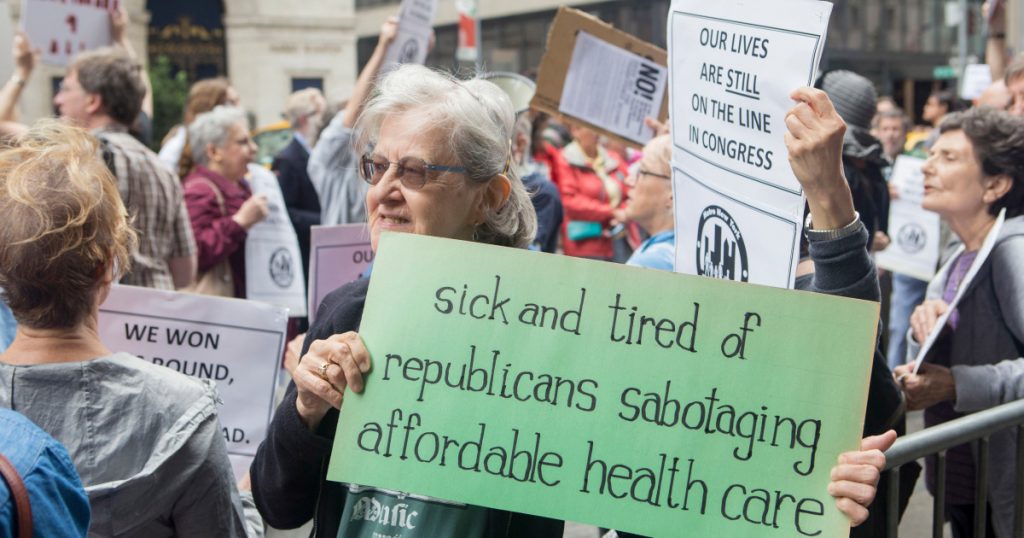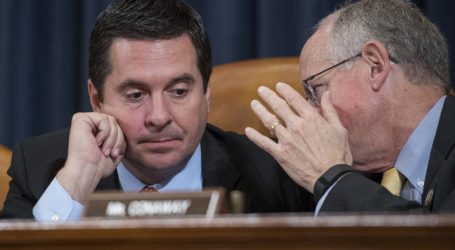The Number of People Without Health Insurance Has Gone Up Under Trump
Percy Alban/Zuma
For indispensable reporting on the coronavirus crisis, the election, and more, subscribe to the Mother Jones Daily newsletter.The number of uninsured Americans rose by one million in 2019, according to a Census Bureau report released Tuesday, reversing a trend of lowering uninsured rates ushered in by the Affordable Care Act.
The number of people without insurance in the United States rose from 28.6 million, or 8.9 percent of the population, in 2018 to 29.6 million, or 9.2 percent of people, in 2019, according to the report.
The uninsured rate among the non-elderly population started falling in 2010 after the Affordable Care Act was enacted, according to the Kaiser Family Foundation, but it started to tick back up in 2016. The increased uninsurance rates correlate with President Trump’s promotion of short-term “junk insurance” plans and the repeal of the individual mandate, which required people to pay a penalty if they weren’t insured.
The nicks and cuts inflicted on the ACA have likely to led to an increase in the number of people uninsured. These include massive cutbacks in outreach, leeway given to states to restrict their Medicaid programs, and repeal of the individual mandate penalty.
— Larry Levitt (@larry_levitt) September 15, 2020
The report also contains some disappointing numbers about coverage of children:
The ACS uptick in uninsured is concentrated among the nonelderly, both in the 19-64 group and for children.
Sad news about kids’ coverage: “In 2019, there were about 320,000 more uninsured children than there were in 2018.” pic.twitter.com/wcPoMIJalN
— Emily Gee (@EmilyG_DC) September 15, 2020
The data in the report was gathered before the pandemic caused record joblessness, so the number of people without insurance in 2020 is likely much higher. Meanwhile, the fate of the ACA hangs in the balance as a lawsuit that could repeal the entirety of the legislation awaits deliberation by the Supreme Court.





